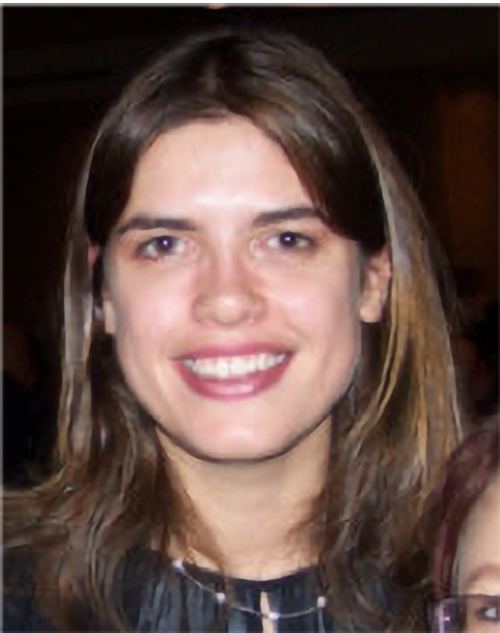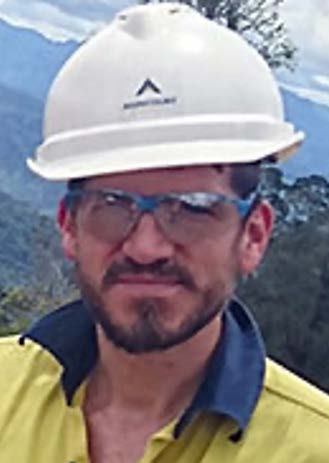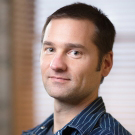BOARD OF DIRECTORS

Gord McKenna, Chair, is a geotechnical engineer and geologist with 32 years of experience in mine operations and consulting for oil sands, coal, and metal mines. Gord founded McKenna Geotechnical Inc in 2017 to bring his landform design experience to a broader audience and provide independent geotechnical advice to geotechnical review boards, panels, and First Nations. Gord and his team have designed 20 reclaimed watersheds that cover 40 square kilometres and incorporate 30 wetlands and 90 kilometres of streams. He has been a lead contributor to several manuals on landform design, mine reclamation, and tailings, and co-authored 100 papers and book chapters. He has a bachelor’s degree in geological engineering from the University of British Columbia and a PhD in geotechnical engineering from the University of Alberta. Gord is also an adjunct professor at the U of A.

Mike O’Kane is a senior technical advisor of Okane Consultants, which has offices in Canada, Australia, New Zealand, and the US. He develops conceptual and detailed closure plans for mine waste storage facilities worldwide and is an expert in the design, implementation, and performance monitoring of cover systems for mine waste under a wide variety of climate conditions. A major focus of his work is the application of unsaturated zone hydrology and surface-atmosphere interactions to the management of tailings and waste rock. Mike has a bachelor’s degree in civil engineering and a master’s in geotechnical engineering, both from the University of Saskatchewan.

Christine Daly is an award-winning conservation, reclamation, and community engagement specialist. Dr. Daly is the principal of Daly Reclamation & Reconnection Inc. and a sessional lecturer at the University of Calgary. Her collaborative and innovative approach has led to many environmental improvements in the oil sands industry, including tailings pond reclamation, fen wetland reclamation, and an industry-wide boreal woodland caribou conservation challenge. Christine co-created a participatory and inclusive approach to mine reclamation and closure planning with Fort McKay First Nation co-researchers, called “co-reclamation.” The Co-reclamation Project, and its associated planning tools, explored this approach with Fort McKay First Nation co-researchers to support their stewardship and reclamation of the Fort McKay Traditional Territory in Treaty 8, northeastern Alberta, Canada, which is affected by oil sands activities.

Anne Naeth is a professor of land reclamation and restoration ecology in the Faculty of Agricultural Life and Environmental Sciences at the University of Alberta, where she is also associate dean of research and graduate studies and director of the Land Reclamation International Graduate School. Anne’s reclamation research focuses on understanding plant-soil-water relationships and their effects on ecosystem structure and function and their role in reclamation after disturbances associated with pipelines, mines, and lands used for industry, agriculture, grazing, forestry and recreation. She is also interested in the impacts of invasive species and waste products such as compost, manure, sewage sludge and biosolids. She has a master’s and a PhD in land reclamation, both from the University of Alberta.

TECHNICAL ADVISORY PANEL
Mike O’Kane is a senior technical advisor of Okane Consultants, which has offices in Canada, Australia, New Zealand, and the US. He develops conceptual and detailed closure plans for mine waste storage facilities worldwide and is an expert in the design, implementation, and performance monitoring of cover systems for mine waste under a wide variety of climate conditions. A major focus of his work is the application of unsaturated zone hydrology and surface-atmosphere interactions to the management of tailings and waste rock. Mike has a bachelor’s degree in civil engineering and a master’s in geotechnical engineering, both from the University of Saskatchewan.

June Pollard, Co-chair, is an engineering geologist specializing in mine closure planning and reclamation, landform design, site characterization investigations, geological mapping and project management at Wood plc. She has been involved in the design and construction of large-mine reclaimed watersheds at mine sites across Western Canada. A number of these projects were instrumented watersheds for reclamation research, each of which fostered several post-graduate degrees. June has authored a number of conference papers on mine closure and has presented on landform design and mine reclamation for short courses at conferences, universities and mining companies. She has a bachelor’s degree in geological sciences from the University of Leeds and a master’s in engineering geology from Newcastle University.

Nick Beier is a geotechnical engineer and assistant professor in the Department of Civil and Environmental Engineering at the University of Alberta in Edmonton. His research interests encompass tailings and mine waste management for surface mining operations, including those in the oil sands of northeastern Alberta, in addition to base and precious metals. He focuses on development and evaluation of new tailings dewatering and management strategies through simulations and laboratory and field testing programs. Through the Oil Sands Tailings Research Facility, he leads research into the depositional and long-term geotechnical behavior of chemically amended and/or freeze-thaw dewatered fine tailings. He holds a master’s and PhD in geoenvironmental engineering from the University of Alberta and has served as a technical advisor to Canada’s Oil Sands Innovation Alliance (COSIA).

Stephen Day is a senior geochemist and chair of the board at SRK Consulting in Vancouver, BC. He is a specialist in the development of waste management plans that address acid rock drainage and leaching of mine wastes in general. He has a particular expertise in the development of prediction methods for mine planning and modeling of leachate chemistry. Stephen’s project experience includes development of innovative approaches to management of potentially acid generating wastes at new mines, assessment of existing waste disposal facilities at operating and abandoned mines to determine options for reduction or elimination of contaminated drainage, and environmental audits of mines. He holds a bachelor’s degree and a master’s degree in geology from the University of British Columbia.

Jason Fisher leads the Applied Conservation Macro Ecology Lab at the University of Victoria, BC, where his team studies how the changes humans make to landscapes affect the ability of wildlife species to persist, thrive, and co-exist. His research focuses on the spatial ecology of mammals, fishes, and songbirds in terrestrial and marine environments, and the spaces in between, using coordinated distributed experiments across western Canada. Jason is a former senior research scientist with the Alberta Research Council and biologist with the Newfoundland and Labrador Inland Fish and Wildlife Division. He has a master’s and a PhD in biology from the University of Victoria, where he was a Natural Sciences and Engineering Research Council scholar.

Andy Fourie is a professor in the School of Civil, Environmental and Mining Engineering at the University of Western Australia in Perth. He has worked at the University of Queensland and the University of Witwatersrand and has been a visiting professor at the University of Alberta, the Catholic University of Valparaiso in Chile, and the University of Colorado in Boulder. His research focus is mitigating the impacts of mining and municipal solid waste disposal. Outcomes from his research have been incorporated in environmental legislation in South Africa. He recently contributed to a series of guidelines for managing mine tailings in Australia and helped develop a document on barrier systems for retaining uranium mining waste for the International Atomic Energy Association. He has a bachelor’s and master’s degrees from the University of the Witwatersrand in South Africa and a PhD from Imperial College, University of London.

Jennifer McConnachie is a senior mine reclamation and closure specialist with Teck Resources Ltd. Jen was previously the Manager of Reclamation with the BC Ministry of Energy, Mines and Petroleum Resources and is a member of the BC Technical and Research Committee on Reclamation. She has close to 20 years of experience in mine reclamation in British Columbia, designing and implementing progressive reclamation and final closure at operations, developing and enforcing regulatory standards for all types and scales of mines in BC, and advocating for improvement of reclamation best practices. She holds a bachelor’s degree in environmental science and geomorphology and a master’s in environmental science from the University of Northern British Columbia.

Steven Pearce is the technical director of Mine Environment Management Ltd. in Wales, UK. He is a principal level geo-environmental scientist with over 15 years of international experience in geo-environmental risk management. His areas of expertise include applied geochemistry, mine waste management, mine closure and rehabilitation, groundwater and human health quantitative risk assessment, and hydrogeology. Steven’s professional experience has been predominantly in the sectors of mining, heavy industry, waste management and construction. Steven is currently supporting industry-lead research into the areas of carbon sequestration, optimization of mine waste planning, and the development of novel laboratory analysis techniques for mine waste characterization. He has a master’s degree in environmental geoscience from the University of Birmingham, and is a fellow of the British Geological Society and an associate member of the UK-based Institute of Civil Engineers.

Doina Priscu is a principal engineer and co-founder of Priscu and Associates Consulting Engineers Inc., based in British Columbia, Canada. She is a civil/mining engineer with more than 25 years of professional experience in operations, consulting, research, and the regulatory aspects of the mining industry. Doina provides specialized engineering services in mine closure and reclamation planning, design, implementation, and review, as well as long-term post-closure assessment and performance evaluation of sustainable closure solutions. She also advises on sustainable mining plans and environmental management for mining operations. Over the years, Doina has managed projects in Canada, Chile, Peru, Brazil, Argentina, Bolivia, and Romania. She actively participates in organizing technical conferences, volunteers with the Canadian Institute of Mining and various professional associations, and is a Fellow of Engineers Canada. Doina holds an MSc from the Technical Institute of Civil Engineering of Bucharest, Romania and an MEng from McGill University in Montreal, Canada. She is a registered Professional Engineer in the Province of British Columbia.

Justin Straker is a soil scientist and forest ecologist at the Integral Ecology Group, which he co-founded in 2010. Justin has more than two decades of experience in applied terrestrial ecology, and focuses his practice on three fields: reclamation of surface-mining disturbances, including design, implementation, assessment, review and regulatory inspection of reclamation and reclamation-research programs; assessment of the cumulative effects of human activities on ecosystems; and, assessment of environmental effects of industry (e.g., air pollution) on terrestrial ecosystems. Justin is based in Duncan, BC, and has worked throughout Canada, Alaska, South America, and South Asia. He has a bachelor’s degree in anthropology from McGill University, and a master’s degree in soil science from the University of British Columbia.

Dirk Van Zyl has more than 40 years of experience in research, teaching, and consulting in tailings and mine rock structures. In the past decade much of his attention has focused on mining and sustainable development. Since 2010, he has been a professor and chair of mining and the environment at the University of British Columbia’s Norman B. Keevil Institute of Mining and Engineering. His current research focuses on mining’s contribution to sustainable development, as well as the application of life-cycle assessment to mined earth structures. He previously served as director of the Mining Life-Cycle Center and chairman of mining engineering at the University of Nevada’s Mackay School of Mines. Dirk is a registered professional civil engineer, and the author of more than 90 publications. He is a graduate of the University of Pretoria and was awarded a master’s and a PhD in geotechnical engineering from Purdue University.

Jerry Vandenberg is a professional chemist in Alberta and BC. He was a principal environmental chemist at Golder Associates from 2004 to 2019. He has also worked for environmental departments in all three levels of government since 1997. He now divides his time among consulting at Vandenberg Water Science; as a sessional instructor of environmental science, environmental impact assessment and limnology at UBC (Okanagan); and as a paid-on-call firefighter. He holds a bachelor’s degree in environmental science and a master’s in environmental chemistry from the University of Calgary, and a water quality technology diploma from Okanagan University College.